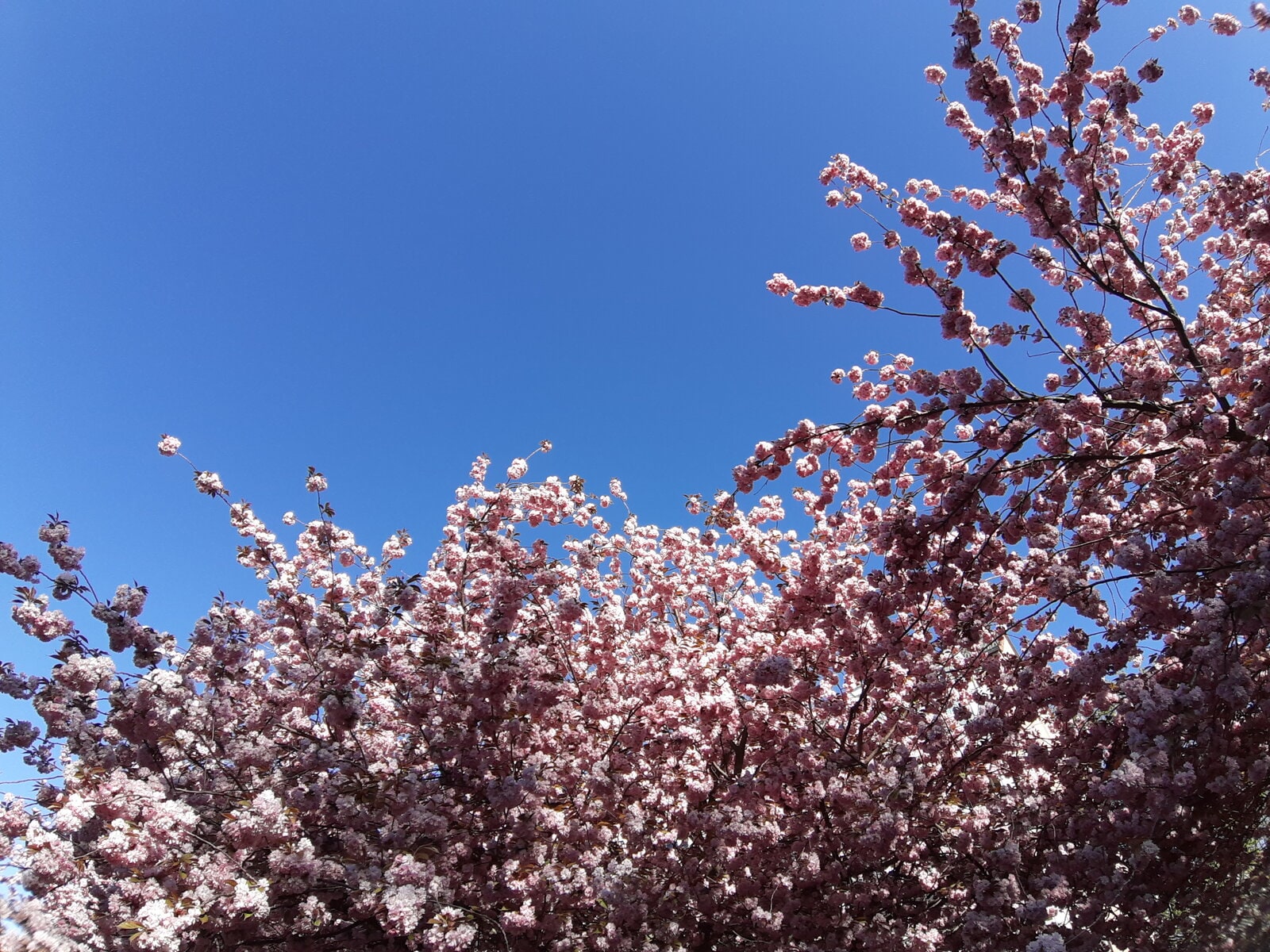Azzam to Zula: Hummus in Berlin
Dieser Artikel erschien ursprünglich auf slowtravelberlin.com — Hier lesen
Anne Thomas explores the nuances of Berlin’s best hummus spots, and how they function as informal peacekeepers...
Hummus is nothing more than chickpeas, sesame paste, lemon, soda and salt. Some argue garlic is also a vital ingredient; others swear on cumin; heretics might even add coriander.
The disagreements on the flavours and ingredients of "real hummus" are no different to those provoked by any popular dish, whether it’s borsch in Eastern Europe or couscous in North Africa: each cook has a secret recipe handed down over generations.
However, hummus differs in that although it is a quintessentially Arab dish, it has become a symbol of national identity for Israeli Jews, making it an unwitting culinary symbol of the Middle East conflict. "They stole our land and even stole our hummus," is how a Palestinian based in Berlin once put it to me wryly.
“It’s at the same time both essentially Israeli and utterly Arab," concludes Adam Bonwitt, a Berlin-based Israeli student of literature, in his essay "Chickpeas and National Identity: How Hummus became Israeli". A 2005 survey ranked "wiping hummus" (using pita bread to scoop it off the plate) as the second best thing a newly-arrived Jewish immigrant could do to feel Israeli – second only to visiting the Wailing Wall.
Yet, “when push comes to shove," writes the London-based Israeli chef Yotam Ottolenghi in his magnificent new cookbook Jerusalem, "nobody seriously challenges the Palestinian hegemony in making hummus, even though both they and the Jews like calling it their own."
The irreverent comedian and actor Sacha Baren Cohen makes light of the levelling effect of hummus in his 2009 mockumentary "Brüno", while the very non-fictional Australian filmmaker Trevor Graham even shot a film entitled "Make Hummus not War". "I have this crazy idea: Could a regional love of hummus be the recipe for peace in the Middle East?" he asks.
It was similar feelings that motivated Bonwitt to write the afore-mentioned essay. His starting point was Azzam, a popular Palestinian-run hummus joint (or “hummusia” to use the jargon) that is located not in Tel Aviv or Abu Gosh, but right here in Berlin - on Sonnenallee to be precise. Just a stone’s throw from where I live, it’s where I’ve been getting my hummus for years.
"I was so excited and I realized that lots of Israelis were going there,” Bonwitt says. “I began thinking ‘maybe there is hope.’” He describes Azzam as a "typical immigrant restaurant, supplying its Lebanese and Palestinian customers with an illusion of an imagined homeland, thus giving them temporary relief from the immigrant's pain caused by the mismatch between chosen place and identity."
"In recent years," he continues. "An ever growing number of Israelis have begun frequenting Azzam. They flock here for the same reason Palestinians do. The place provides them, too, with an illusion of home and an arena to practise what has become one of the defining rituals of Israeliness."
"Many Israelis come and we get on very well with them," confirms owner Hussam Azzam, a friendly young man in his 30s who can be found here at practically any time of night or day. "They say that when they come here they feel at home. They usually order hummus, musabaha and falafel." “I can tell if someone is from Israel or Palestine," he says with a wink. "I know because of the way they say hummus.”
Hummus and falafel are probably familiar to most - but not everyone from outside of the Middle East has come across musabaha. Always made fresh on the spot, this special dish consists of whole chickpeas and hummus combined, with more than a hint of garlic, just enough lemon and a good dash of olive oil.
Served warm, it is more aromatic, more exciting, and more satisfying than plain hummus.
It's Hussam Azzam’s favourite and Adam Bonwitt goes so far as to lend it supernatural properties. “The satisfaction it gives me is incomparable to anything else - good hummus makes me feel weak. It’s magical because it is so simple. Many Israelis I know have had this feeling seeing musabaha in Azzam.”
One of those Israelis is Eylam Langotsky, a self-described chickpea addict. “Every place I go, I make a tour of a new town and then I see all the good falafel places," he explains. He says he immediately felt at "home" when he found Azzam where the "falafel was amazingly crispy and the hummus was really good too. (…) Even the stench of the cooking, the smoke, the people and the language. These are the noises, the sounds, the smells, you grow up with.”
He tells me this as we eat in a place without these noises, sounds and smells. We’re at Zula's, an Israeli-owned hummus café in Prenzlauer Berg. The hummus is, at least to my relatively untrained palate, as good as the one served at Azzam's – moreover, it's not served with pickles but with mushrooms (Israel's variation on the Arab dish, along with egg) and a green chilli sauce that gives it a refreshing kick.
What makes it extra special is the home-baked bread - Azzam in my humble opinion loses a couple of marks for serving plain cold pita with its amazing musabaha, but these are mere quibbles.
With little more than a photograph of the Wailing Wall by way of décor, the setting here is warm and tasteful – this upscale hummusia with matching prices is about as far from Azzam as you can get. In Bonwitt’s opinion, it doesn’t have the right atmosphere because a good hummus place has to be "dingy, oily and cheap."
“It’s just part of the egalitarian thing that hummus has – it’s people’s food. Part of the experience is the place which is supposed to be a bit basic, it’s almost street food." To be fair, Adam also thinks that even Azzam is too upmarket now that it's undergone a renovation.
For Ze'ev Avrahami, the owner of Sababa – Mama's Kitchen in Mitte, there was no place in Berlin that corresponded to his idea of hummus and he felt compelled to open his own shop. "Hummus is not food,” this burly man with his permanent five o’clock shadow tells me.
“It's a way of life. It's addictive – it's a drug. I eat hummus every day." He too, has a mission: Apart from hummus with various toppings, Sababa's also serves a "peace salad" made half of tomatoes, half of cucumbers and mint. "Some say it's Arab, others say it's Israeli, half and half, green and red."
Like at Zula's, the furniture is simple and there is an airy feeling to the space. There is no “stench” and the only “noise” emanates from the speakers – the voice of Berry Sakharof, the “prince of Israeli rock” resonates while Avrahami accompanies him - loudly.
I "wipe" my bread into the plate before me – topped with paprika and parsley and just the right amount of oil drizzled on top, the hummus looks great. And… yes it also tastes as it should, but perhaps it’s a tad on the bland side. Have I been spoilt by Azzam’s musabaha?
When Eylam Langotsky was growing up, he was struck that one of the few occasions when Jews and Arabs “mingled, sat side-by-side and didn’t argue was when they were eating hummus. “I was fascinated that people who said they hated each other ate the same food. Food closes up the political divide – at least for half an hour.”
These are Azzam’s sentiments exactly. “I only want to make food,” he says. “I am not political. I don’t want war. I want both sides to get on. War is just nonsense. Both countries can get on and live together. Why should there be war?”
Azzam Restaurant
Sonnenallee 54, 12045 Berlin
Tel: 030 60977541
Sababa - Mama's Kitchen
Kastanienallee 50, 10119 Berlin
Zula Hummus Cafe
Husemannstraße 10, 10435 Berlin
Husemannstraße 10, 10435 Berlin
Tel: 030 41715100


